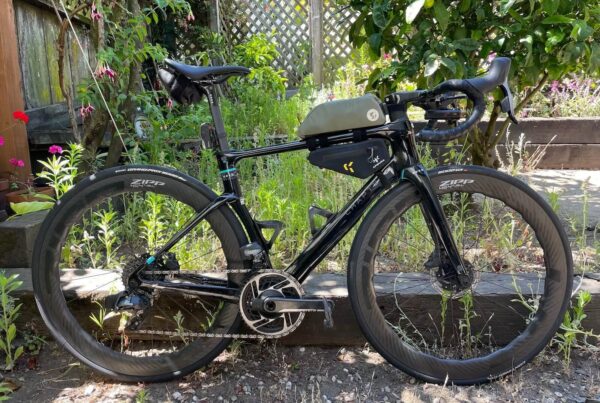So you just got a ticket while riding your bike. Now what do you do? Should you fight the ticket? Or should you just pay it and move on?
The answer to that depends on a number of factors. Were you caught breaking a traffic law? Did you break the law, but feel that there are extenuating circumstances that would help a judge understand what happened? Did the officer make a mistake? Were you involved in a collision with another vehicle?
Also consider the effect a ticket can have on your life. A ticket does not mean that you are guilty. It is just a summons to appear in court and answer the charge against you. But if you are found guilty, you will likely be required to pay a fine that can range from a minimal fee to several hundred dollars or more. Additionally, a conviction on your driving record is virtually guaranteed to raise your insurance rates. And if you get ticketed too often, you can even lose your driver’s license. There’s more. Some employers ask to see the driving records of job applicants. And if you receive a ticket as a result of a traffic collision, you will be seen as the at-fault party by the other driver’s insurance company, regardless of who is actually at fault.
All of these issues are factors you should weigh in deciding what to do once you’ve been ticketed. Let’s take a closer look at a few common scenarios—and what the best course of action might be.
Scenario 1: You broke the law and got caught
Let’s say you saw the stop sign but didn’t see the police officer. Ignoring the sign, you rolled through, got pulled over, and were ticketed.
If you pay the ticket, it’s equivalent to a guilty plea and conviction. But if you decide to fight the ticket, you will be required to enter a not guilty plea and appear in court on your trial date. And here’s the problem—when you appear in court, the officer will be there as well, prepared to testify against you. If all you have to say in your defense is “I did not do what the officer says I did,” guess who the court will believe? Not you.
Should You Fight? Maybe. If you were caught red-handed and you have no defense, and if your time is more valuable than the fine, then paying the ticket might make sense to you. You might also consider saving yourself the embarrassment of having the officer’s video recording of your obvious violation of the law played back in court after you just denied breaking the law.
But if you want to keep the traffic ticket off your record, then you will either need to fight the ticket or go to traffic school for cyclists (if one is available in your town). If the violation is a misdemeanor, you are facing criminal charges and should give very serious consideration to hiring a lawyer. And if the violation is a felony, it is absolutely vital for you to hire a lawyer to defend against the charge.
Scenario 2: You broke the law, but there’s an explanation
Now let’s say that you rolled through that stop sign, but you didn’t see the sign. Was it because you weren’t paying attention? If so, that won’t get you off. But what if it was because the sign was hidden behind something that blocked your view—a large truck for example, or foliage on a tree? Now you have a defense you can use at trial.
Should You Fight? Yes.
Scenario 3: You weren’t breaking the law, but got ticketed anyway
I have seen this happen many times. Sometimes it happens because an officer is unfamiliar with the law. It also happens when officers are ordered to “crack down” on cyclists. And perhaps worst of all, it can happen when a cyclist is involved in a traffic collision and there is confusion about who did what.
For example, one cyclist whose injury case I handled was ticketed when an eyewitness said that the cyclist “came out of nowhere, so he must have been going the wrong way.” Maybe the eyewitness just didn’t see the cyclist until the moment of impact, as is often the case in collisions. But when the cyclist, who was suffering from a concussion, was unable to tell his side of what had happened, he was the one ticketed, even though the driver was also suffering a medical emergency—the real cause of the collision—and could not explain what had happened either.
These tickets can be easy to beat. If you can demonstrate to the court that the officer is wrong on the law, or even on the facts of the case, you will likely win. But what if you were ticketed as a result of a traffic collision? If you don’t beat the ticket, you probably won’t be compensated for your injuries. The driver’s insurance company will stonewall you until the deadline for resolving the case has passed. So if you want to be compensated for your injuries (and legal expenses), fighting one of these unjust tickets is a must.
Should You Fight? Yes.
Although I do not handle traffic tickets as a part of my bicycle law practice, in Part 3 of this article, I will explain how you can get the best outcome for your case, regardless of whether you actually broke the law, or it just looked that way when the officer got out his ticket book.
Research and assistance by Rick Bernardi, J.D.
This article, Ticket Talk, Part 2, was origially published on Bicycling on March 6, 2013.



